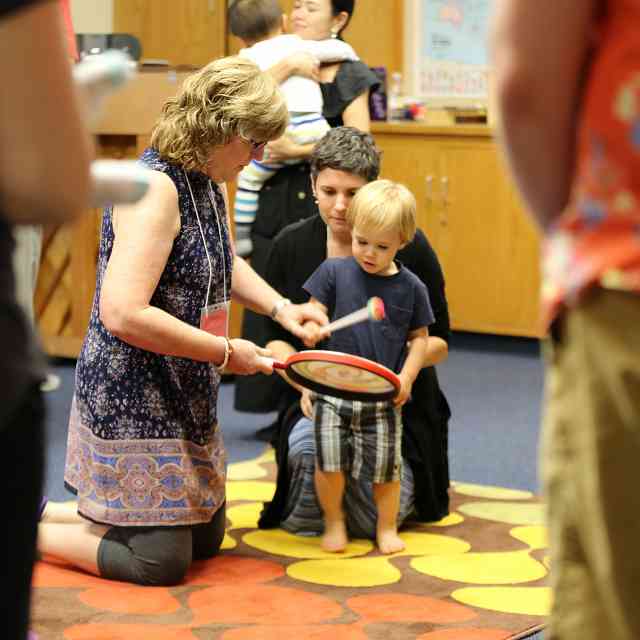We are living in challenging times; our lives have changed dramatically overnight due to COVID-19. It is overwhelming, and scary, on so many levels. As teachers the big question is—how can we continue our studios? As a Suzuki community, we have a uniquely strong advantage!
Do Not Despair:
The Suzuki Triangle is Here!
From the smallest studio to international cooperation, this may be when we truly change the world with music! The outpouring of international cooperation in the past weeks has been positively inspiring! As Dr. Suzuki advocated: let’s all work together!
I am the director and a teacher at the Hong Kong Suzuki Music Institute (HKSMI). Here, we have been dealing with this outbreak since January. At our school we decided to be extra cautious and have been teaching online since February 3, 2020. As I write, we are entering week eight of a fully online Suzuki school: private lessons, group classes, concerts, parent-teacher conferences, and even the pre-instrument and SECE classes. I have amazing colleagues and we have tried and tested various ways of providing online education. It is working very well! How do we do it? Our big secret is… surprise… the parents!
The Suzuki Triangle has always been key, but now it is critical! This is the time we can make the foundational side of the Triangle rock solid. As teachers, we need to collaborate effectively with the parents so we can all support their children at the peak of the Triangle. I have been so impressed with the parents in our studios. They are doing an incredible job under tough circumstances. Fortunately, because they are Suzuki parents, they already know how to work with their children musically.
There is much advice being given about the nitty gritty of technical software and how to teach specific pedagogical techniques, so here are some general tips for approaching online teaching:
1. Breathe!
Everyone is overwhelmed and all undergoing a huge learning curve! Forgive yourself if you have mixed emotions, or feel unfocused, during this incredibly unprecedented and anxiety-ridden time.
2. Patience
Be willing to try and fail. It will take a few weeks for students, parents, and teachers to adapt to this new normal, you will all experiment with techniques that work and those that don’t—just try again!
3. Compassion
Parents are going to be under extra stress in the coming time period with learning to work from home and homeschooling (depending on your location). Families may be under quarantine, be stuck abroad, or have a sick relative. Nerves will be frayed. Listen and understand that this is a trying time for everyone, including you.
4. Talk to your studio families about their situation
Families will find themselves in all kinds of different and unusual situations. Here are a few things to consider. Where are your studio families? In Hong Kong, the outbreak began during the Chinese New Year holiday and many families were traveling, some decided to stay away, while others returned, yet other families were separated through border closures. We had to adapt schedules to multiple time zones and sometimes work with grandparents or guardians who had not been in lessons before. Some parents were still working at the office, others from home, and others lost their jobs. What is their internet accessibility and skill set? We started by working across several platforms daily (Facetime, Zoom, Whatsapp, and Skype), and then settled into one or two that worked best. Are their children still in school, or is it canceled? Will they have regularly scheduled classes via the internet, or are they unscheduled with homework assignments? Are they in quarantine, on lockdown, or free to move about? Has anyone in their family been exposed to, or contracted, COVID-19? Are any family members front line workers? These are just some variables to consider. Open communication is best for mutual understanding and problem solving.
5. Use the Suzuki Triangle to your advantage
Your Suzuki studio parents are your allies, we are collaborating to teach their children a lifelong love of music. The pandemic is a large blip in the road, but we are still working long term within our triangle. There will be things you cannot do through the computer. You can’t fix a bow hold; you can’t physically move anything. Ask yourself, how can this particular parent help the most during the lesson and home practice? How can I tailor what this parent and child team need to continue learning during this challenging time?
Here are some ideas. Ask the parent to repeat and interpret what you say over the internet. I know it often drives teachers crazy when parents repeat word for word, but the child will hear it better in person. If your studio parents also play the instrument ask them to do the my/your turn modelling for you, especially if the connection is not great. Ask them to be your eyes and ears and answer questions about specific details that you may have a harder time assessing. Discuss separately how you can work better together in these circumstances.
6. Progress, not perfection
As a theatre colleague of mine, Keon Lee explained, his guiding principle right now is “progress, not perfection.” This may seem counterintuitive for Suzuki teachers who aspire to “always with excellence,” but by providing the thread of normalcy to our studio families we are still growing and learning. At an unprecedented time like this, that is excellence. Many studios are simply suspending their lessons and their students are missing out on any musical development. Progress may not be as on the normal timeline, but it will improve. Just like in the pre-twinkle time period, we are maintaining and laying foundations for when we can all make music together again.
7. Don’t expect to recreate the in-person lesson exactly
Online is a different, but valid, way of learning. Lessons will be similar but not be quite the same. You will discover your own way through this. Don’t be afraid to fail, just learn and improve. Remember online music learning is not new, but it is unfamiliar to many of us. The current scale of the effort to go online, especially with younger children is cutting edge, and I personally think it will change education forever.
8. Take it slowly: verbalize and use my/your turn
Speak slowly and repeat yourself. At the start, verbalize examples you usually model. As your students adapt to online learning they will follow more easily. You may find it takes you more time than normal to teach certain elements, alternatively you may whiz through others. Don’t be afraid to repeat and cover less (or more) in a lesson. I am now spending extra time on new pieces as it takes me longer to teach them with my/your turn. I also ask for more repeats if the sound quality is variable. As everyone gets used to the new format progress will increase towards normal levels.
9. Be positive
Remember when Suzuki stood by the door to meditate on lowering himself to the understanding of a five-year-old but raising his consciousness to their level of awe in learning? Put yourself in your student’s shoes and think creatively about how to best give their lesson. Leave all your worries aside, be understanding, be professional, be compassionate, be positive. There is so much stress, anxiety, and fear circulating, let your lessons be a spot where that is put away and we focus on the love of music!
10. Connect to your colleagues
Our faculty has been discussing and meeting regularly to figure out how to improve our online offerings. If you are a single teacher, reach out to your local colleagues or online to the international community. There are plenty of people willing to help. The Distance Learning Forum for Suzuki Teachers on Facebook is an excellent place to start.
11. Make yourself a student: learn something new
As Suzuki teachers we are lifelong learners, but it is easy to get stuck in our ways and fear something outside our comfort zone. Be patient with yourself. There are great resources being shared, spend some time watching tutorials, and connecting online. Test and trial your chosen software and be willing to change it if it doesn’t work for you. That said, keep it simple, don’t challenge yourself to do more than you can handle. Take the small step-by-step approach for yourself and do your best!
12. Recharge physically and mentally
Give yourself breaks! Physically you may not move around as much in front of a screen as during an in-person lesson, so take time to stretch. Vocal strain can happen, you may naturally project for the microphone, use a headset with a built-in mic. You might also experience some eye strain, adjust the brightness of your screen, and do look away from the it frequently. Mentally, it can be quite taxing to teach hours online as you try to portray at a distance what can seem so easy in-person, do your best, but plan for extra rest. You will get used to it and it will get easier. If you can, get out in the fresh air. Make time for your own restorative practices whatever they may be (spiritual, physical, emotional, interpersonal). Take time to connect with your loved ones near and far.
13. Plan for the worst, hope for the best: plan for long term online
Yes, this will eventually pass, but I have to say one of my major stressors in February was thinking that it might get better in the next week or two. I was a bundle of nerves for a month or more. I think we can all safely plan for online to be our future for now. We will return to our in-person lessons, but you will provide much better education if you accept that online is what we are doing for the foreseeable future.
14. Finally, listen to your public health advisories and stay healthy!
We are truly lucky to be a part of the international Suzuki community of colleagues and families. It is amazing that this modern time period allows us to try to maintain a sense of normalcy through online lessons. I hope you all stay healthy and your students thrive through online learning. We can do it together!
Wishing you all the best from the Hong Kong Suzuki Music Institute!









